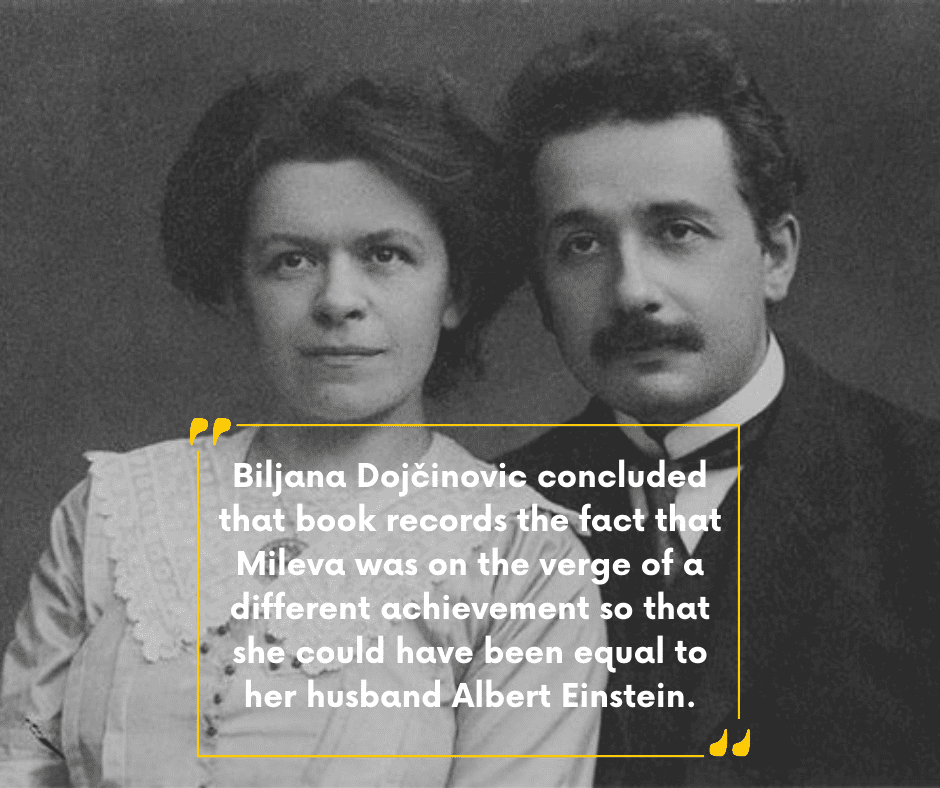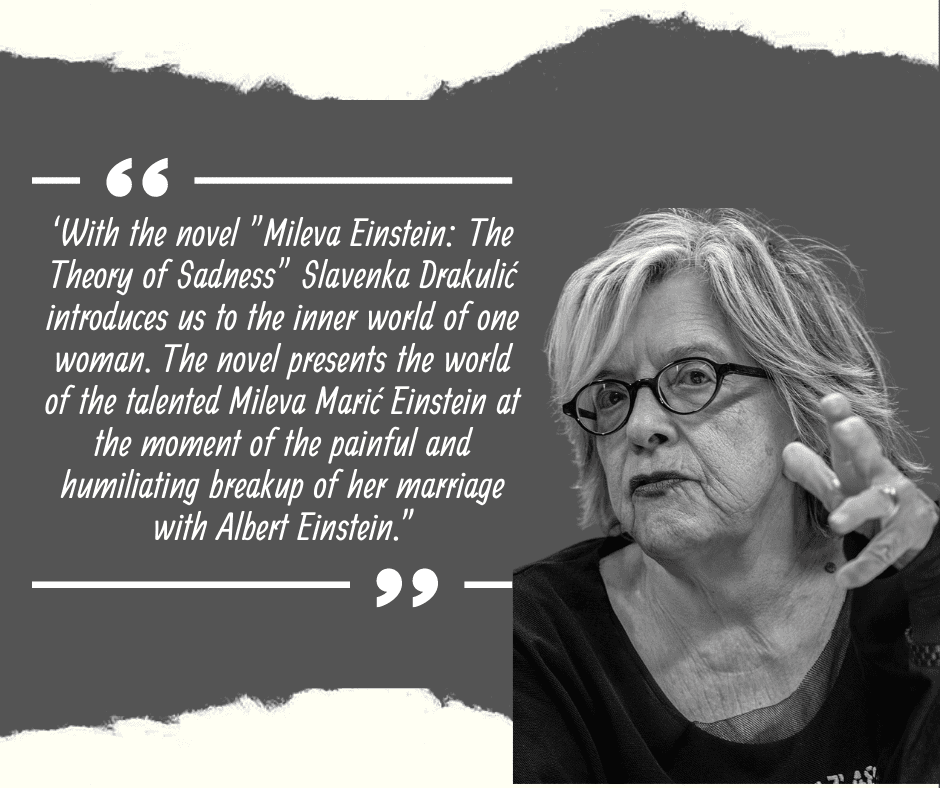Slavenka Drakulić – Mileva Marić was highly gifted, a strong woman in a shadow of a man.

Prominent regional writer Slavenka Drakulić was a guest of Belgrade Laguna publishing house this month.
Laguna has recently published her book Mileva Einstein: “Theory of Sadness” („Mileva Ajnštajn: Teorija tuge“), and noted that this book was a story about Mileva, a remarkable woman in the world of science, but also her relationship with a complicated, unpredictable and emotionally immature man. The publisher also added that the book was a universal story about a woman who, at a particular moment, had to choose between her personal ambitions and taking care of her family.
With the novel “Mileva Einstein: The Theory of Sadness” Slavenka Drakulić introduces us to the inner world of one woman. The novel presents the world of the talented Mileva Marić Einstein at the moment of the painful and humiliating breakup of her marriage with Albert Einstein.”
In the crowded Bukmarker cafeteria in Delfi SKC bookstore Slavenka Drakulić presented her book Mileva Einstein: The Theory of Sadness”, and talked about it.
“I am happy to come to Belgrade. These were old memories of my generation before the war when these meetings were more frequent. I feel very good in Belgrade, especially in this bookstore, which is like a beautiful literary labyrinth”, said Slavenka Drakulić.

She also stressed: “Einstein has always prioritized his scientific research, and Mileva, who was also extremely gifted, was a wife and a mother. Therefore her genius could not come to the fore, which is why she is a tragic person but worthy of attention. It is important to point out that this is a literary character. I took certain elements from her life that I considered important and created a literary character”.
Slavenka Drakulić also revealed what the immediate reason for her interest in Mileva Einstein was:
“During my stay in America, the conversation started about Einstein and intellectuals in general. It turned out that few people knew that Mileva was Einstein’s first wife, and that seemed unfair to me. Then I started reading more about her, and she fitted perfectly into my idea of writing about strong women in the shadow of a man.”
Slavenka Drakulić gave her voice to Mileva Marić Einstein

Jasmina Radojičić, the editor of Laguna, pointed out at the promotion that Slavenka Drakulić gave her voice to the other side in the intimate relationship between the two geniuses:
“The sentence that is important for this novel and that remained in my memory is when Mileva writes to Einstein and says: ‘It’s easier for you to worry about the whole world but about your two children’,. There you can actually see how much the pose that a man often takes is to take care of the whole world, and how the excuse to leave the care of the family to someone else is an excuse that is accepted as legitimate”, said Jasmina Radojičić.
Radojičić added:
“With this novel, Slavenka gives a voice to Mileva, but also to every woman who, for numerous reasons, social-historical or some other, was invisible and unrecognized, and that voice is absolutely authentic and literary convincing.”
Biljana Dojčinović, a professor at the Faculty of Philology in Belgrade, shared her impressions about the book ‘Mileva Einstein: The Theory of Sadness”.
She highlighted that Slavenka Drakulić perfectly described the inner world of Mileva Marić in her book.
“While reading, you don’t wonder if it’s true, but you’re sure it had to be like that, which means the character is convincing. This is the story of a woman who was handicapped by being a woman. Secondly, because she wanted to do science, she had a physical and hereditary handicap in her family. At the time, under all circumstances, she did not have any support. Nevertheless, this book acknowledges what she was able to do.”
Biljana Dojčinovic concluded that book records the fact that Mileva was on the verge of a different achievement so that she could have been equal to her husband Albert Einstein.

written by Jelena Jovanović
Slavenka Drakulić, journalist and writer, was born in Rijeka in 1949. She publishes books in Croatian and English, some of which have been translated into over twenty languages.
She has six titles published by the American publishing house Penguin. In non-fiction books, he mainly deals with everyday life under socialism, and after 1989, with war. Her first non-fiction book Smrtni grijesi feminizma (The deadly sins of Feminism) from 1984. is one of the first articles on feminism in the former Yugoslavia.
Belgrade publishing house Laguna published her book “The Invisible Woman and Other Stories” in 2020, and this year “Theory of Sadness”.
Slavenka Drakulić lives between Croatia and Sweden. She publishes articles, columns and political commentary in newspapers and magazines The Nation, The New Republic, The New York Times Magazine, The New York Review of Books, Suddeutsche Zeitung, Internazionale, Dagens Nyheter, The Guardian, and Eurozine.
More details about her work can be found on her official website – https://slavenkadrakulic.com/
